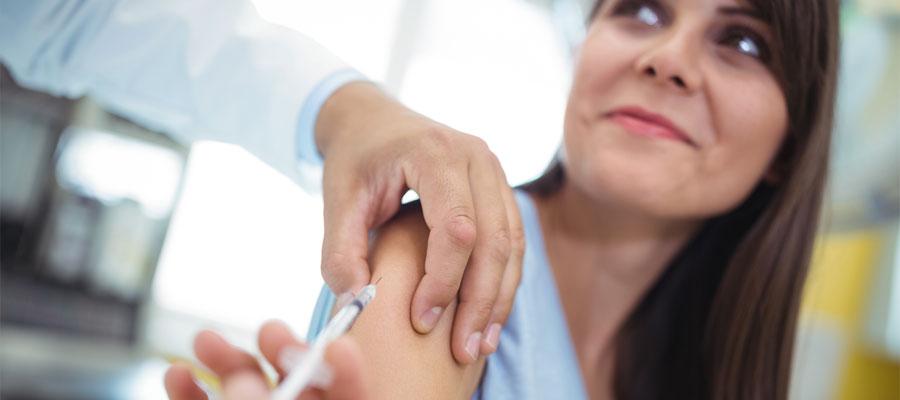Why America’s international sharing of vaccines is not enough

Sanford Health, the largest rural health care provider in the country, overcame considerable logistical challenges to deliver Covid-19 vaccines to some of the most remote and isolated communities in the U.S.
It seemed an almost insurmountable task as the rural Midwest faced a deadly surge in Covid cases during treacherous winter weather.
President Joe Biden’s announcement earlier this month that the U.S. will purchase and donate 500 million doses of the Pfizer Covid-19 vaccine to 100 low- and middle-income countries is an important first step to vaccinating the rest of the world, but vaccines only work if you can get them in people’s arms.
Much of what Sanford Health has learned from its remarkable turnaround in the Dakotas has immediate relevance to safely delivering and efficiently administering vaccines for the many millions of rural populations abroad including the massive territories of Sub-Saharan Africa – and may be of equal or greater importance to South Asia countries like India that, despite huge metropolises, also must also address a vast scattering of small communities and remote outliers.
Considerations for a successful global vaccination campaign
A thoughtful, efficient and effective global vaccination campaign will be critical to bringing an end to this pandemic. As the U.S. begins to donate vaccines in earnest in the coming weeks and months, here are a few practical suggestions for Jeff Zients, who has been tasked by the White House to lead global vaccination efforts:
- Deploy with the vaccines, access to virtual consultations with experts from U.S. health care systems who have been on the front lines of the successful rollout of Covid-19 vaccines to metropolitan as well as rural areas. Sanford Health commends the U.S. Chamber of Commerce Foundation and the USA Healthcare Alliance for their efforts in helping to coordinate and share resources among key U.S. and international NGOs and care providers.
- Assign to the U.S. State Department, which is already monitoring and tracking Covid-19 information from every nation, the urgent task of preparing and distributing multi-lingual “how-to” guides outlining best practices in setting up vaccination sites, establishing and protecting supply chains, managing cold storage and training front-line staff to safely administer vaccinations. These guides must be shareable and readable on all mobile platforms.
- Invite U.S. foreign commercial service officers already deployed abroad to facilitate dialogue and partnership between experienced health care providers in the U.S. and foreign public health officials tasked with persuading local community members to vaccinate their families.
Leveraging expertise from U.S. health systems
U.S. health systems have never been better positioned to help our neighbors around the world. Renowned health systems like vhttps://www.hopkinsmedicine.org/international/international_affiliations/ and Cleveland Clinic have a global presence and on-the ground expertise that can be leveraged to support vaccination efforts. Sanford Health has operated primary care clinics in rural and urban communities across Ghana for a decade, and also has global health partnerships spanning seven other countries.
Success here is transferrable to low- and middle-income countries where needs are greatest.
Sanford Health partnered with Hospital Metropolitano in Costa Rica (population just 5 million) to establish the country’s first drive-thru Covid-19 testing site nearly a year ago, coupled with weekly emerging-threat meetings that informed the hospital’s patient population and its providers of what was approaching. That drive-thru facility, run exclusively by Costa Ricans for Costa Ricans, became an international model – safely and effectively testing 113,000 patients over the course of 12 months.
Today, our two organizations are still working together, now preparing for a national vaccination campaign that will ramp up this summer. Sanford Health staff and leaders with lived experience and expertise in logistics and vaccine delivery from the U.S. will participate – but the operations on the ground will be strictly local Costa Rican health care professionals who are already trusted by the community and have the right knowledge and skills.
Engaging U.S. health systems to provide expert consultations to low- and middle-income nations receiving America’s donated vaccine will not only save hundreds of millions of lives – it will also strengthen sustainable global relations for decades to come.
Now is the time for the U.S. to share its expertise and deliver on its promise to bring a shot of hope all those who most desperately need it.
Luke J. Lindberg is the executive director of global strategy, Innovation and World Clinic for Sanford Health in Sioux Falls, South Dakota. He was previously Chief of Staff and Chief Strategy Officer for the Export-Import Bank of the United States.

